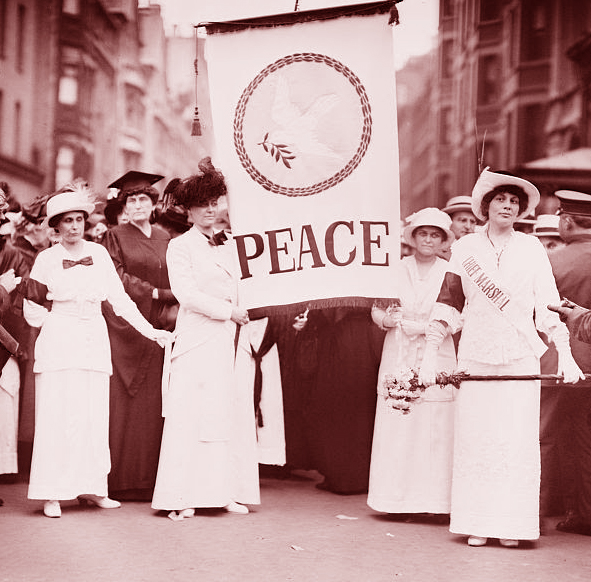
Newsletter Subscribe
Enter your email address below and subscribe to our newsletter

By Trudy Thomas
Americans love to spend money on mom when it comes to the annual Mother’s Day. But the $20-billion commercialized holiday has lost sight of the original vision of the ladies who founded it.

Mother’s Day sprang from the efforts of Ann Reeves Jarvis, a West Virginia minister’s wife. Jarvis responded to the sanitation needs of Appalachia’s poor and the wounded and dying soldiers of the Civil War by organizing Mother’s Day Work Clubs.
During the war, she asked her clubs to declare neutrality and tend to both Yankee and Confederate wounded.
After the war, Jarvis continued to advocate for peace by organizing meetings she named Mothers Friendship Days, to heal emotional wounds between families divided by the war.
Her influence grew when, in 1872, noted writer Julia Ward Howe took up the cause suggesting, “Mother’s Day for Peace.”
Howe had also seen the devastation of the war and in 1870 wrote, “A Mothers’ Day Proclamation,” protesting all war.
When Ann Reeves Jarvis died in 1905, her daughter, Anna Jarvis, wished to fulfill her mother’s desire for a day dedicated to mothers. She began the push for a national holiday.
Three years later, the first ceremony was held at Jarvis’ church, Andrews Methodist Episcopal in West Virginia. At that service, Jarvis provided white carnations for participating mothers.
Subsequently, the church observed Mother’s Day on the second Sunday of May and Jarvis provided red carnations for living mothers and white for those who had died.
The carnations became symbols of the purity, strength and endurance of motherhood.
By 1909, Mother’s Day celebrations took place in 46 states.
West Virginia’s governor issued the first Mother’s Day proclamation in 1910 and in 1912, the state became the first to adopt an official Mother’s Day.
Finally, in 1914 Jarvis got her wish. The U.S. House and Senate approved a resolution proclaiming the second Sunday of May as Mother’s Day and President Woodrow Wilson endorsed it.
But the victory soon soured for Jarvis. In 1923, she filed a lawsuit to stop a Mother’s Day festival where women sold white carnations to raise money. When the suit was thrown out, she publicly protested and was arrested for disturbing the peace.
“This is not what I intended,” Jarvis said. “I wanted it to be a day of sentiment, not profit.”
Ironically, Jarvis never became a mother herself. She spent her last days blind and penniless in a Pennsylvania sanitarium. Before she died in 1948, Jarvis told a reporter that she was sorry she had ever started Mother’s Day.
The original Mother’s Day of Peace will be celebrated in Colorado Springs for the second year at a progressive brunch, 10:30 a.m.-2:30 p.m. at Seeds Community Cafe, 109 E. Pikes Peak Ave. To RSVP or get more information on the May 8 Mother’s Day for Peace brunch, email Scott Olson at director@ppjpc.org.